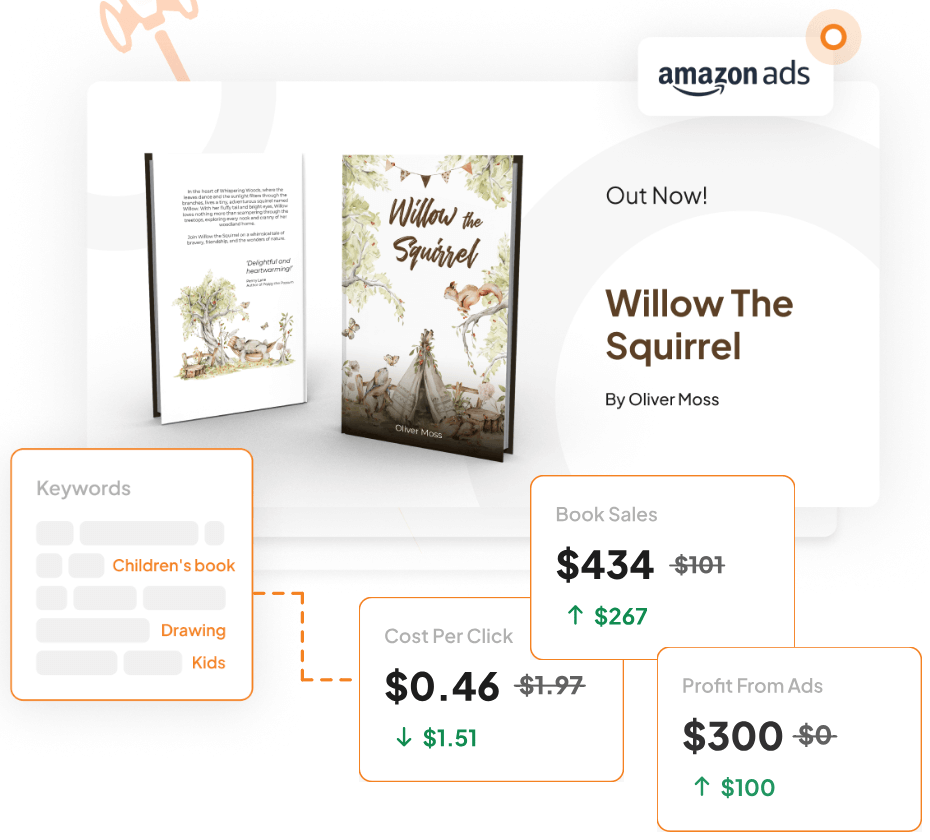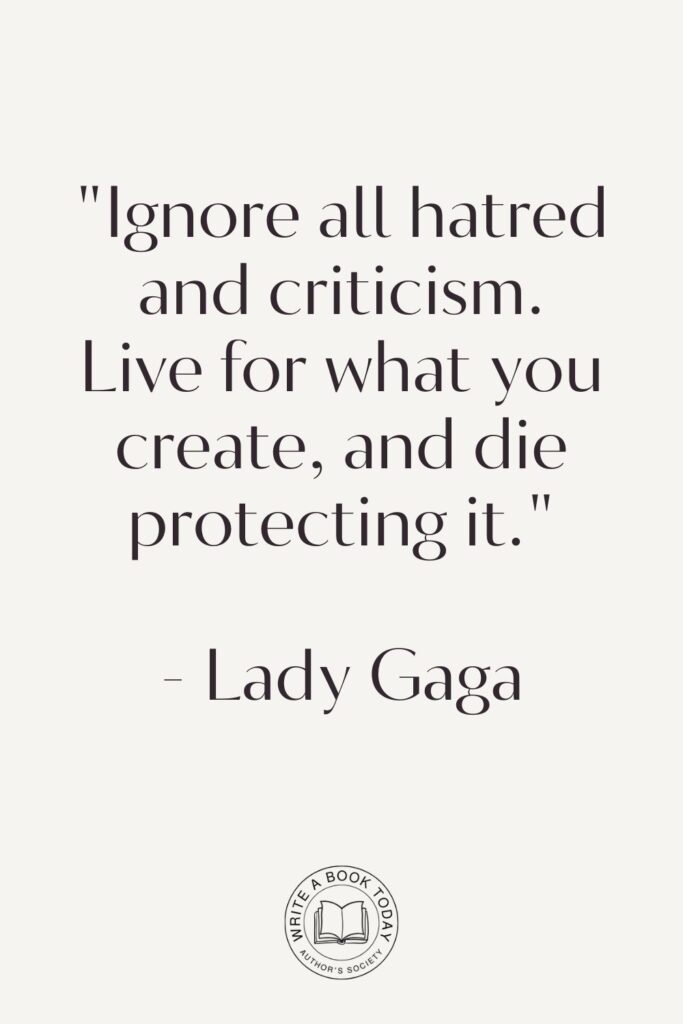Have you ever dreamt of weaving tales that captivate hearts or penning articles that provoke thought? You’re not alone. The world of writing is a vast ocean, inviting those with stories to tell and ideas to share.
But how does one begin building a writing career from scratch? Is it possible to turn a passion for words into a fulfilling profession, even if you’re just starting out? Let’s embark on this journey together and explore the steps you can take to transform your writing dreams into reality.
Embarking on Your Writing Journey
Beginning a writing career is akin to setting sail on uncharted waters. It’s thrilling yet daunting, filled with endless possibilities and unforeseen challenges. The first step is understanding the terrain – the ever-evolving landscape of writing.
Whether you’re inspired by becoming a novelist, a content creator, or a freelance writer, each path offers unique opportunities and hurdles. The key lies in navigating these waters with curiosity and resilience.
No marketing platform? No social following? No problem!
Publisher Rocket helps you market your debut novel like a pro.
It’s a gamechanger for debut authors – try it today!


Understanding the Writing Landscape
The writing industry is as diverse as the genres it harbors. From fiction to technical writing, each niche demands a different set of skills and approaches. Understanding the landscape involves recognizing where your interests align with market demands.
For instance, while fiction may ignite your creativity, technical writing might offer more stable income opportunities. To succeed, immerse yourself in the world of words, read extensively, and stay informed about current trends. This will enhance your skills and help you identify potential niches where your voice can shine.
Consider subscribing to industry newsletters or joining online writing communities. These platforms often share insights on the latest trends, job opportunities, and writing tips that can be invaluable for beginners.
Identifying Your Passion and Niche
Finding your niche is akin to discovering your unique voice amidst the cacophony of the literary world. It’s about aligning your passion with a specific area of writing that excites you and holds potential for growth.
Start by asking yourself: What topics am I passionate about? What do I enjoy reading? Identifying your niche involves introspection and experimentation. Write in different genres, explore various styles, and see what resonates.
Remember, your niche should blend passion and practicality, where your enthusiasm meets audience interest.
Create a list of topics or genres that interest you and try writing short pieces in each. This exercise will help you discover where your strengths and interests converge.

Building a Foundation for Success
Every successful writer began with a solid foundation, a base for their career. This foundation comprises habits, environments, and routines that nurture creativity and discipline. Developing a consistent writing habit and creating a conducive workspace are essential steps in laying this groundwork.
Developing a Consistent Writing Habit
Consistency is the bedrock of any successful writing career. It’s not about waiting for inspiration to strike but about showing up every day to hone your craft. Establish a writing routine that fits your lifestyle.
Whether it’s an hour each morning or a few evenings a week, consistency breeds improvement. As you write regularly, you’ll notice your style evolving, your ideas flowing more freely, and your confidence growing. Remember, the goal is progress, not perfection.
Use productivity techniques like the Pomodoro Technique to maintain focus. Set a timer for 25 minutes, write without interruption, then take a short break. This method can enhance productivity and prevent burnout.
Setting Up Your Writing Workspace
Your writing environment plays a crucial role in fostering creativity. A cluttered space can lead to a cluttered mind. Design a workspace that inspires you. Whether it’s a cozy nook in your home or a bustling coffee shop, ensure it’s a place where you can concentrate and feel motivated.
Personalize your space with items that spark joy or creativity – perhaps a favorite book, inspiring quotes, or soothing music. The right environment can significantly enhance your productivity and enjoyment of the writing process.
| Element | Tips for Optimization |
|---|---|
| Lighting | Ensure your workspace is well-lit, preferably with natural light, to reduce eye strain and boost mood. |
| Comfort | Invest in a comfortable chair and desk that support good posture to prevent physical strain during long writing sessions. |
| Organization | Keep your workspace organized with essential tools within reach, minimizing distractions and maximizing efficiency. |
Navigating the Challenges of New Writers
Embarking on a writing career is not without its challenges. New writers often face obstacles like writer’s block, time management issues, and the fear of rejection.
However, these challenges are not insurmountable. You can navigate these hurdles and emerge stronger with the right strategies and mindset.
Overcoming Writer’s Block and Self-Doubt
Writer’s block is standard for many writers, manifesting as a frustrating inability to produce new work. Coupled with self-doubt, it can feel paralyzing. The key to overcoming these challenges is understanding that they are part of the creative process.
Embrace them as opportunities for growth. When faced with writer’s block, try changing your environment, engaging in different creative activities, or simply allowing yourself to write poorly. Remember, the first draft doesn’t have to be perfect; it just needs to exist.
When self-doubt creeps in, remind yourself of your accomplishments, however small they may seem. Keeping a journal of positive feedback and personal achievements can boost confidence during challenging times.

Mastering Time Management and Procrastination
Time management is crucial for writers, especially when balancing writing with other responsibilities. Procrastination often stems from feeling overwhelmed by the task at hand. Break your writing projects into manageable tasks and set realistic deadlines to combat this.
Prioritize your tasks and allocate specific time slots for writing. Using tools like digital calendars or apps can help you stay organized and accountable. Remember, it’s about making steady progress rather than achieving perfection overnight.
- Set clear, achievable goals for each writing session.
- Eliminate distractions by using apps that block social media or other time-consuming websites.
- Reward yourself for meeting your writing goals to maintain motivation.
Handling Rejection and Imposter Syndrome
Rejection is an inevitable part of the writing journey. Even the most celebrated authors have faced numerous rejections. It’s essential to view rejection as feedback rather than failure.
Analyze the critiques, learn from them, and use them to improve your work. Similarly, imposter syndrome – the feeling of being a fraud despite evident success – can plague writers.
Combat it by acknowledging your achievements and understanding that growth is continuous. Surround yourself with supportive peers who can offer encouragement and constructive feedback.
Join writing groups or forums where you can share experiences and gain support from fellow writers. Knowing others face similar challenges can be incredibly reassuring.
Feeling lost with your debut novel?
Fiverr Pro connects you with expert editors, designers, and marketers – everything you need to get your book ready for success!

Strategies for Career Growth
As you establish your writing foundation, it’s important to consider growth strategies. Building a portfolio, networking, and exploring diverse writing opportunities can open doors to new possibilities and propel your career forward.
Creating a Portfolio and Online Presence
A well-crafted portfolio is your calling card in the writing world. It showcases your skills and style to potential clients or publishers. Start by compiling your best work, whether it’s blog posts, articles, or short stories.
An online presence, such as a personal website or a profile on platforms like LinkedIn, can enhance your visibility. Regularly update your portfolio to reflect your evolving skills and interests. Remember, your portfolio is a dynamic tool representing your brand as a writer.

Networking and Finding Writing Communities
Networking is a powerful tool for writers. It’s about finding job opportunities and building relationships with fellow writers, editors, and industry professionals. Attend writing workshops, conferences, or join online writing communities.
These platforms provide valuable opportunities to learn, share experiences, and gain insights from others. Building a network can lead to collaborations, mentorships, and friendships that enrich your writing journey.
Exploring Different Writing Opportunities
The writing world is vast, with opportunities ranging from freelancing to traditional publishing. Explore different avenues to diversify your skills and income streams. Consider freelance writing, where you can work with various clients on diverse projects.
Alternatively, traditional publishing offers the chance to see your work in print. Each path has its pros and cons, and finding the right fit requires exploration and adaptability. Stay open to new opportunities and be willing to step outside your comfort zone.
Monetizing Your Writing Skills
Turning your writing into a source of income is a rewarding aspect of a writing career. Understanding the different ways to monetize your skills can help you make informed decisions about your career path.
Freelancing vs. Traditional Publishing
Freelancing offers flexibility and the opportunity to work on a variety of projects. It’s ideal for those who enjoy writing across different genres and topics. On the other hand, traditional publishing provides the satisfaction of seeing your work in bookstores and libraries.
Both paths have their challenges and rewards. Freelancing requires self-discipline and business acumen, while traditional publishing demands patience and perseverance. Evaluate your strengths and preferences to determine which path aligns with your career goals.
Google Docs is for notes. Scrivener is for novels. Upgrade your writing game and try it for free today!

Leveraging Social Media and Online Platforms
In today’s digital age, social media and online platforms are powerful tools for writers. They offer avenues to share your work, connect with audiences, and build your brand. Platforms like Substack allow writers to create newsletters and monetize content through subscriptions.
Social media platforms like Instagram and Twitter can be used to engage with readers and promote your work. The key is to use these platforms strategically, building genuine connections and offering value to your audience.
Inspiration and Motivation on Your Path
Inspiration is the fuel that drives a writer’s creativity, while motivation keeps the momentum going. Learning from successful writers and cultivating a growth mindset can inspire and sustain your writing journey.
Learning from Successful Writers’ Journeys
Every writer has a unique journey, filled with lessons and experiences. Learning from the stories of successful writers can provide valuable insights and inspiration. Many writers share their journeys through blogs, interviews, or books.
These narratives often reveal the perseverance, dedication, and creativity required to succeed. Draw inspiration from their stories, learn from their mistakes, and apply their advice to your path. Remember, success is not a destination but a continuous journey of growth and learning.

Cultivating a Growth Mindset
A growth mindset is the belief that abilities can be developed through dedication and hard work. It’s about embracing challenges, persisting in the face of setbacks, and seeing effort as a path to mastery.
Cultivating a growth mindset can transform your writing journey, enabling you to overcome obstacles and achieve your goals. Celebrate your progress, learn from your failures, and remain open to feedback. With a growth mindset, every challenge becomes an opportunity for growth and improvement.
Your Action Plan for Success
Now that you have a roadmap, it’s time to take action. Setting achievable goals and embracing the journey with commitment and passion will set you on the path to a successful writing career.
Setting Achievable Goals and Milestones
Goal setting is a powerful tool for turning aspirations into reality. Set specific, measurable, achievable, relevant, and time-bound (SMART) goals. Break these goals into smaller milestones to track your progress and maintain motivation.
Clear goals provide direction and purpose, whether it’s completing a manuscript, submitting work to publications, or building an online presence. Regularly review and adjust your goals to reflect your evolving aspirations and achievements.
Embracing the Journey and Staying Committed
Building a writing career is a journey filled with highs and lows. Embrace each experience as a stepping stone toward your ultimate goal. Stay committed to your vision, even when faced with challenges.
Persistence, passion, and a positive attitude are your greatest allies. Remember, every writer starts somewhere, and success is a culmination of dedication and perseverance.
Celebrate your achievements, learn from setbacks, and continue writing enthusiastically and determinedly.








